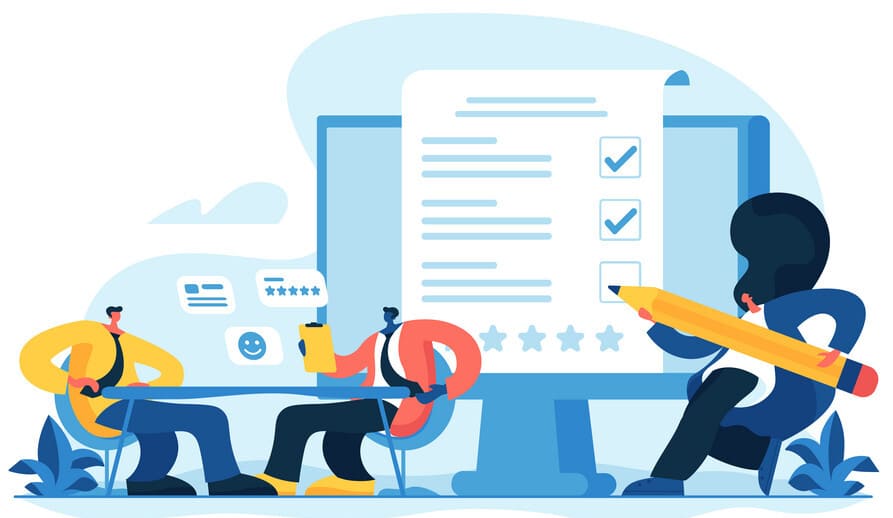Get access to the world’s top-rated assessments for your Employees
Help keep your employees happy, healthy, and productive with our engagement programs, suitable for both small and large businesses.
Happier employees, better business outcomes
Try MantraCare Assessment Program
"*" indicates required fields
What is Sleep Assessment?
Sleep assessment is a process of evaluating an individual’s sleep patterns, quality, and duration. Sleep assessments typically involve collecting self-reported data about an individual’s sleep habits, such as the time they go to bed, how long it takes them to fall asleep, and how often they wake up during the night. In some cases, sleep assessments may also involve the use of wearable devices or other technology to monitor sleep patterns.

Benefits of the Sleep Assessment for Corporate Employees
Poor sleep quality and quantity can have a significant impact on an individual’s physical and mental health, as well as their performance at work. Regular sleep assessments can help companies identify employees who may be experiencing sleep problems, so they can receive the necessary support and resources. Some of the benefits of sleep assessment in the workplace include:
Improved Employee Health: Regular sleep assessments help employees identify if they have sleep problems, so they can receive appropriate medical treatment and make lifestyle changes to improve their sleep quality and quantity.
Increased Productivity: When employees get enough quality sleep, they are more likely to be alert, focused, and productive at work.
Improved Workplace Culture: A culture of health and well-being can help employees feel valued and supported.
Reduced Health Care Costs: By identifying employees who are experiencing sleep problems, companies can reduce the cost of treating related health problems, such as sleep apnea or insomnia.
How to Launch the Sleep Assessment in Your Company?
To launch a sleep assessment program in your company, you will need to follow these steps:
Develop a Policy: Develop a clear policy that outlines the purpose of the sleep assessment program, who is eligible for assessment, and how the results will be used.
Identify a Provider: Find a qualified medical provider to conduct the assessments, such as a licensed nurse or physician.
Train Managers and Supervisors: Train managers and supervisors to recognize the signs of sleep problems, how to refer employees for assessment, and how to support employees who receive a positive sleep assessment.
Communicate with Employees: Communicate the sleep assessment program to employees and encourage them to participate.
Provide Support: Ensure that employees who receive a positive sleep assessment have access to medical treatment and resources for improving their sleep quality and quantity.
In conclusion, sleep assessment is a valuable tool for companies to identify employees who may be experiencing sleep problems. Implementing a sleep assessment program can help improve employee health, increase productivity, create a positive workplace culture, and reduce health care costs.
Client's Sayings

“I was struggling with insomnia and poor sleep quality, and didn’t know what to do. That’s when I found the sleep assessment. The assessment provided me with a deep understanding of my sleep patterns and habits, and what was impacting my sleep quality. The results were easy to understand and included personalized recommendations for improving my sleep. Since taking the assessment, I have noticed a significant improvement in the quality and duration of my sleep, and feel more rested and energized during the day. I highly recommend this assessment to anyone who is struggling with sleep issues and looking for ways to improve their sleep. It has been a valuable tool that has helped me to live a healthier life.”
Nozomi, Employee
Global IT Services Company
Frequently Asked Question's
Insomnia is a common and serious medical illness that negatively affects your health. In shorter words, insomnia is both trouble in falling asleep or having uninterrupted sleep.
Some of the common symptoms of insomnia are:
- Dizziness and sleepiness during the day
- Restlessness and fatigue
- Difficulty falling asleep at night
- Facing interrupted sleep
- Waking up too early in the morning
- Irritability
- Depression and anxiety
- Increased chances of errors and accidents
- Grumpiness
- State of confusion
- Problems with memory and concentration
- Constant worries about sleep.
One of the most serious complications of major insomnia is that you won’t feel active throughout the day because of which you won’t be able to perform well in your day-to-day activities, be it your workplace or home. Some other complications are:
- Depression
- anxiety disorders
- long-term diseases such as hypertension and cardiovascular diseases.
Insomnia can be of the following types:
- Sleep Maintenance Insomnia
- Sleep Onset Insomnia
- Mixed insomnia
- Paradoxical insomnia
When insomnia becomes a major concern, it starts causing troubles in your day-to-day life. You will not be able to concentrate even after trying so hard. You will unnecessarily start feeling tired.

